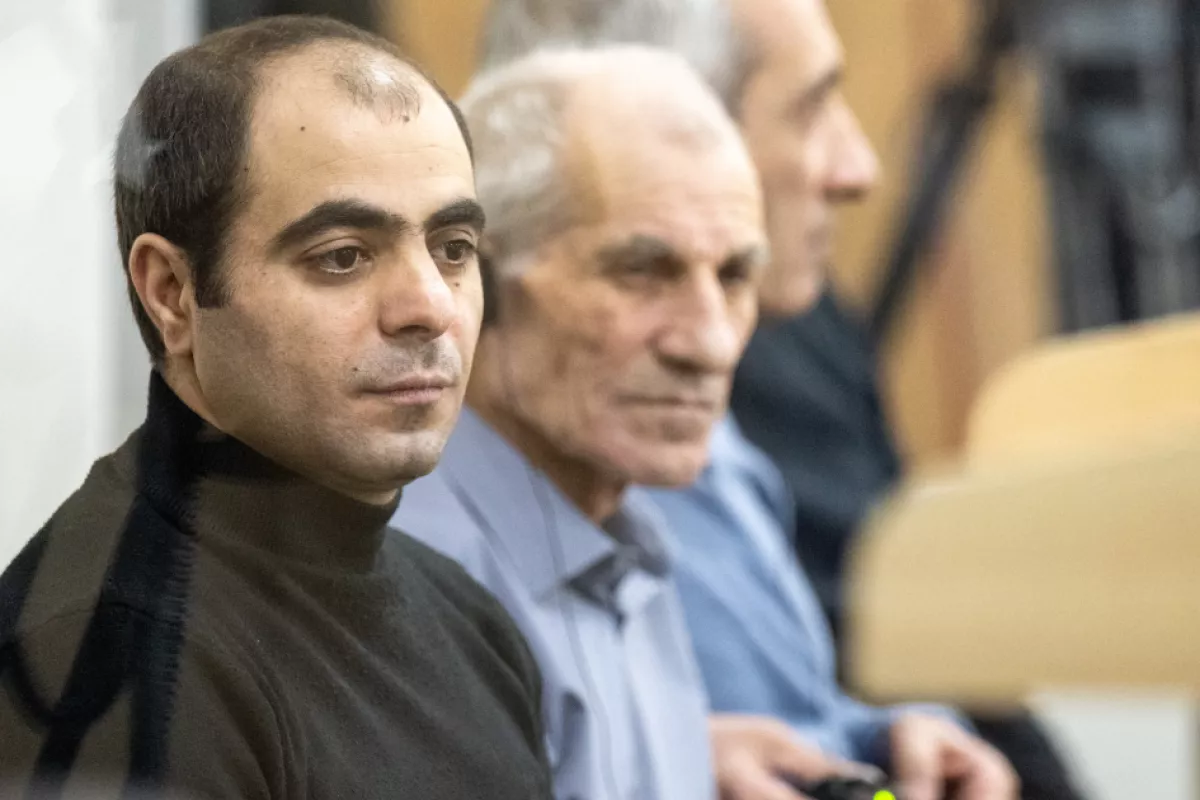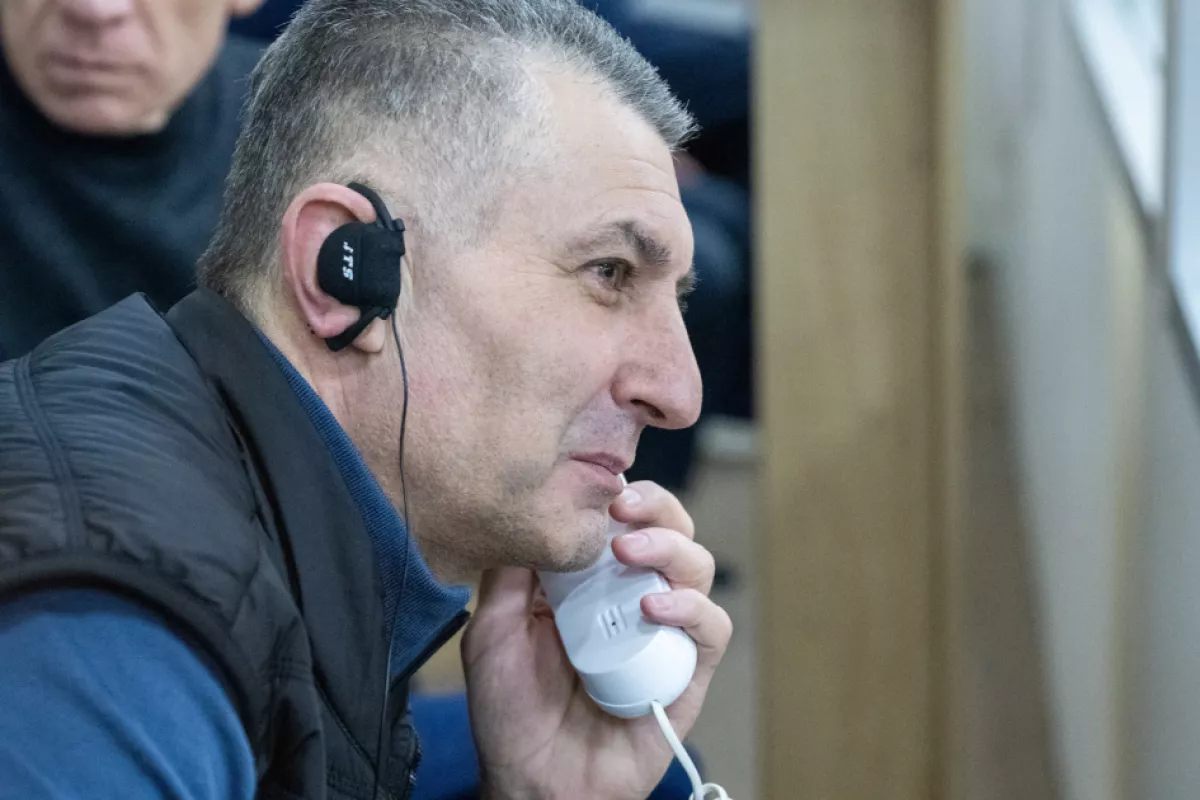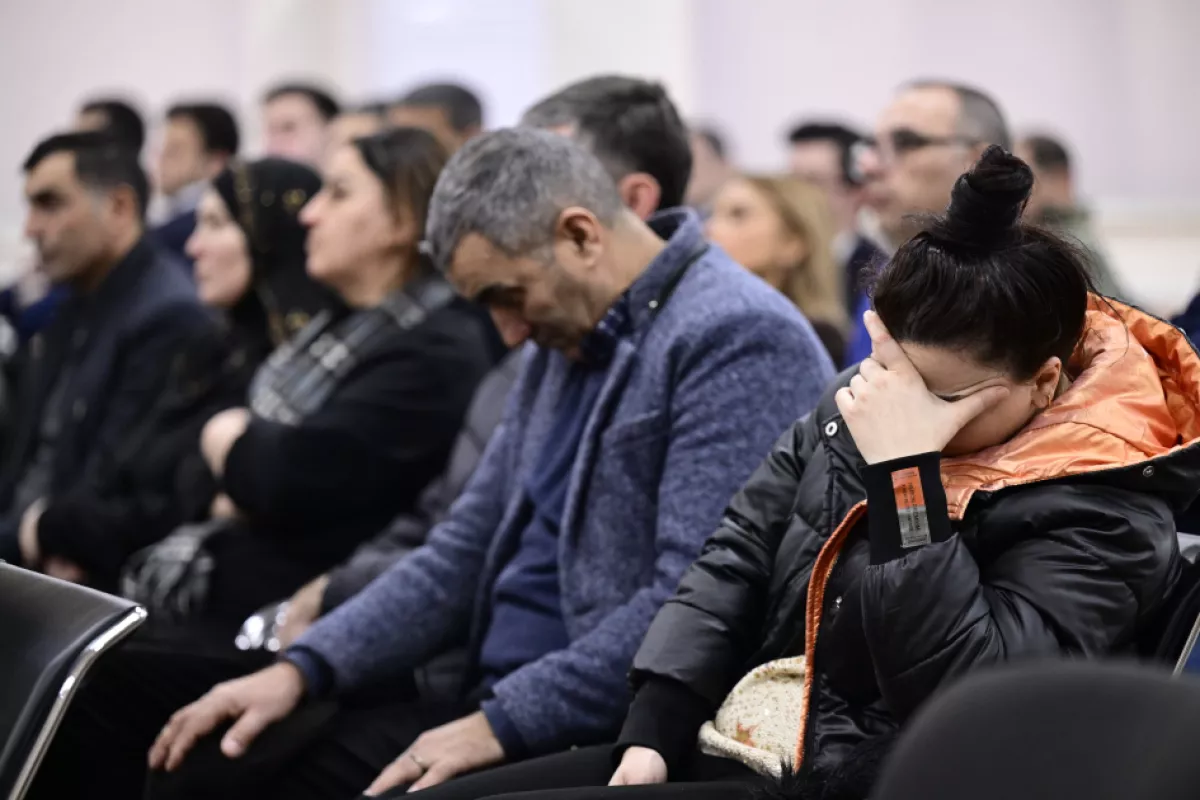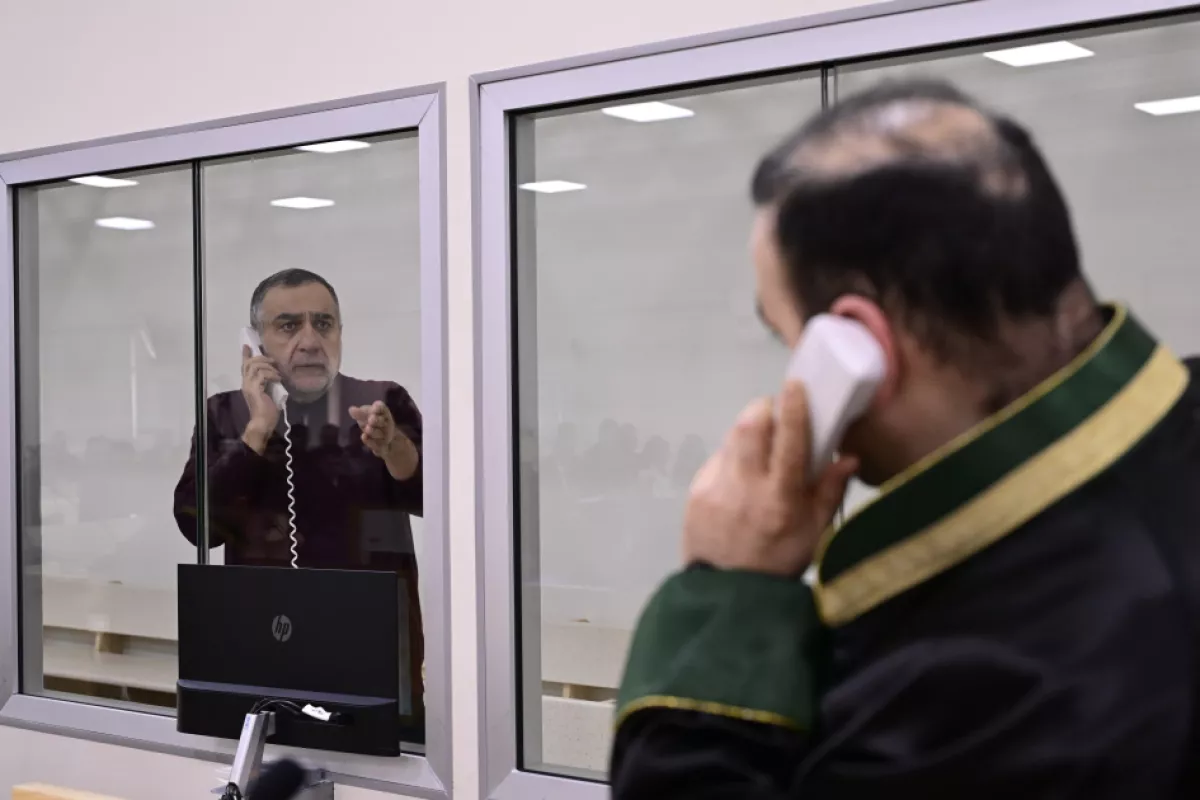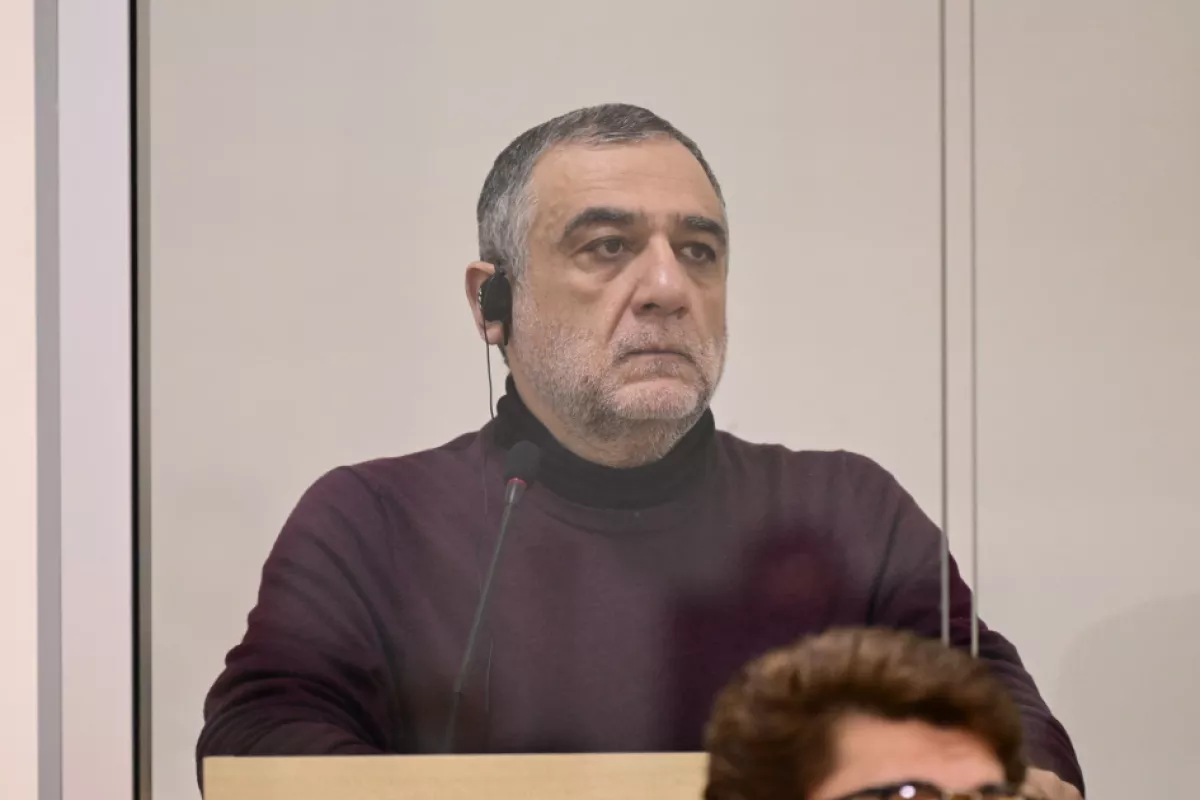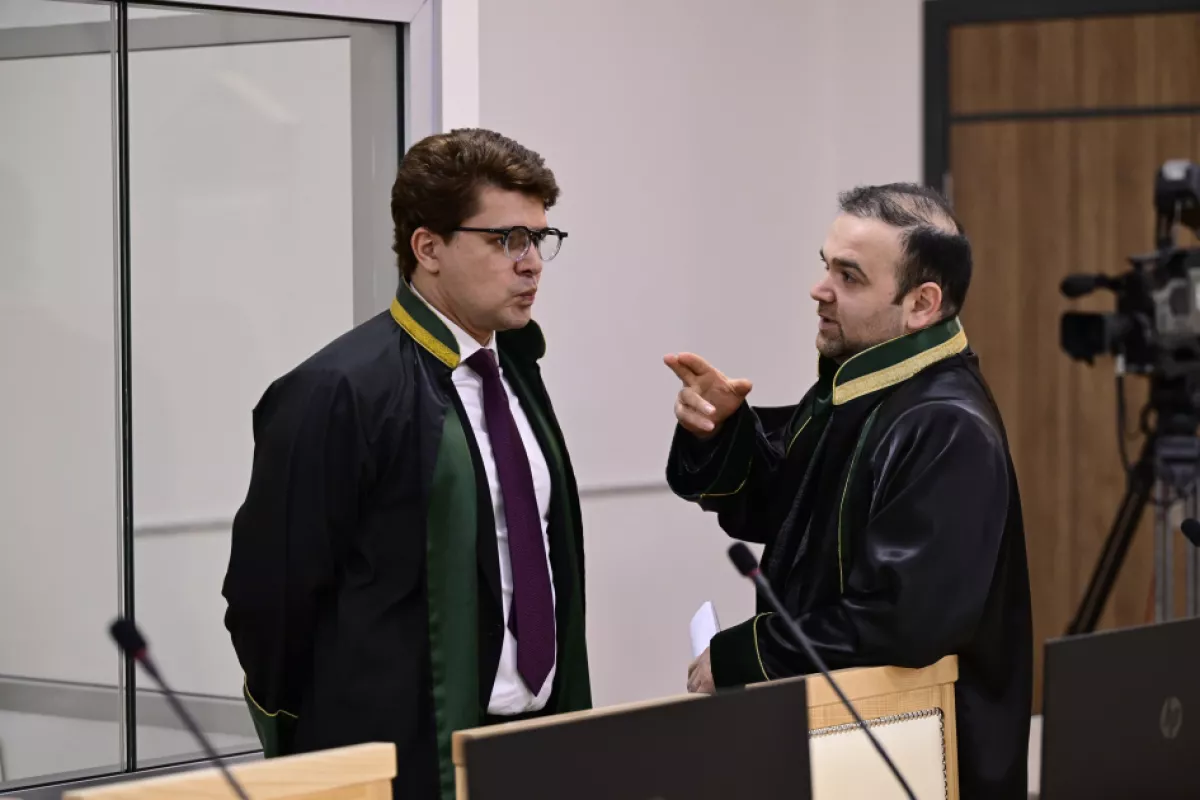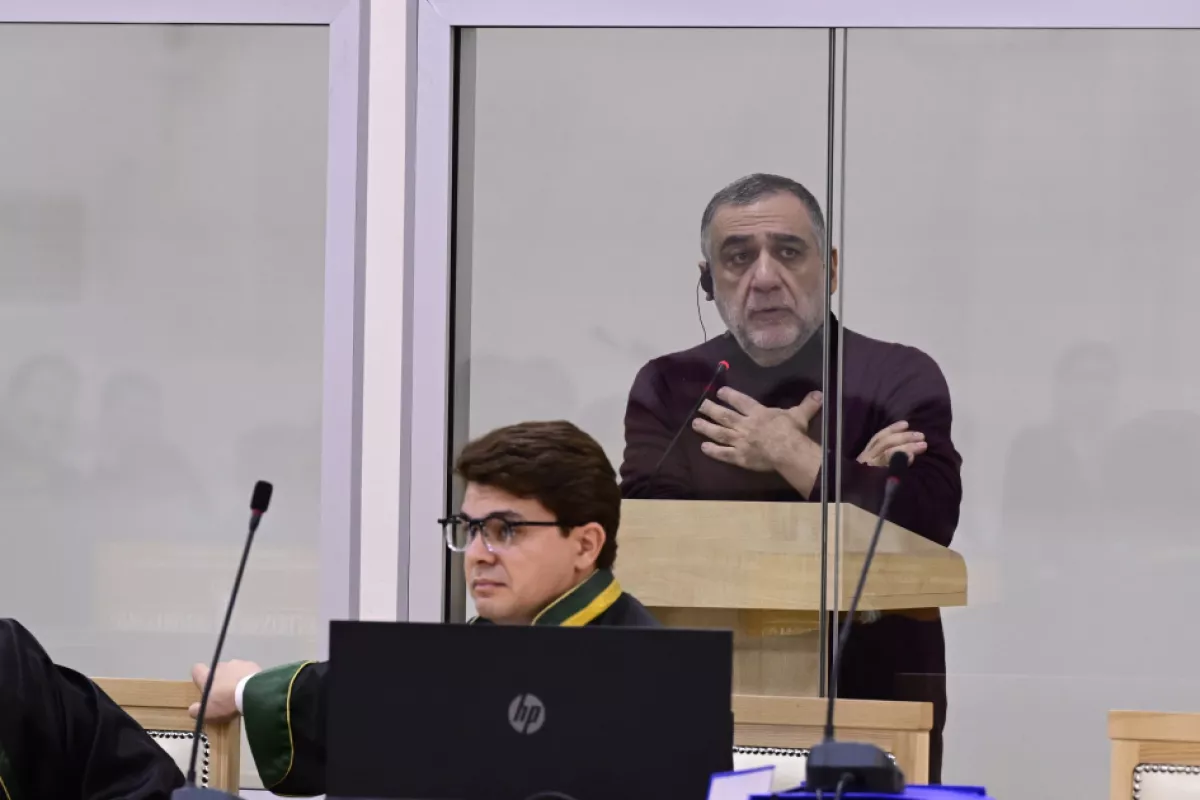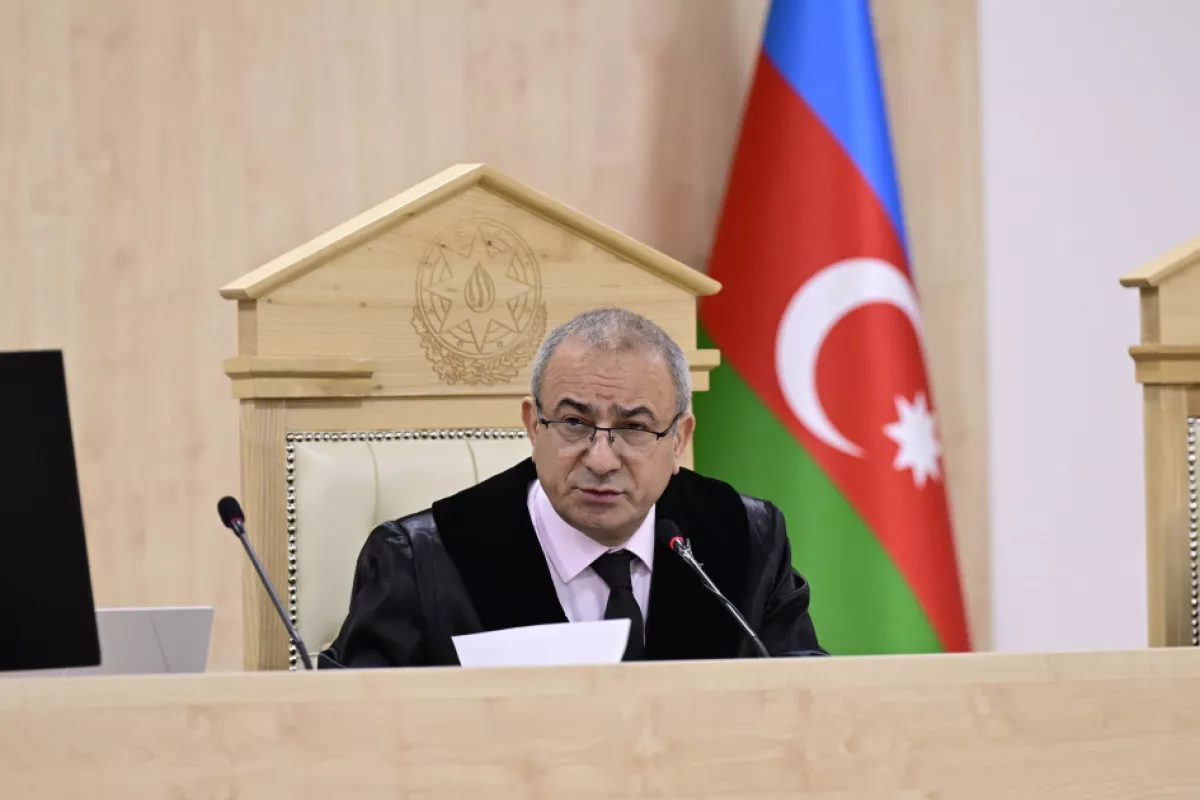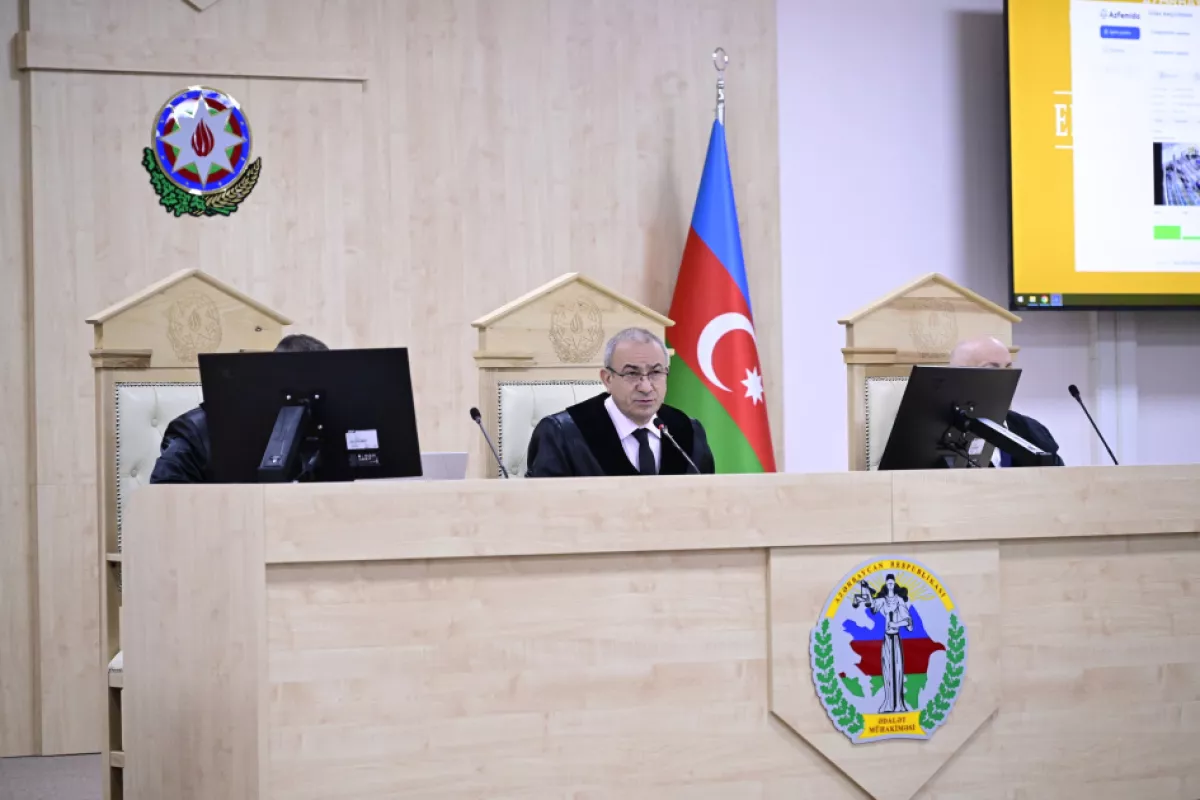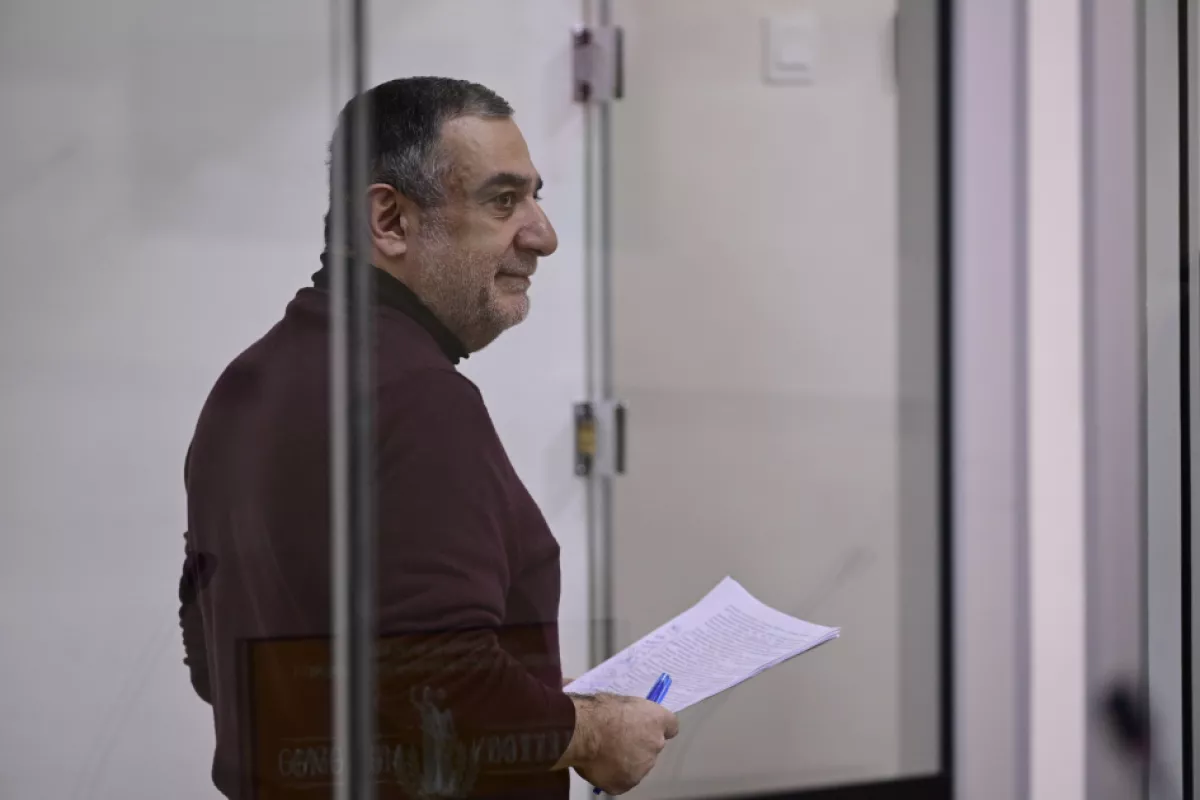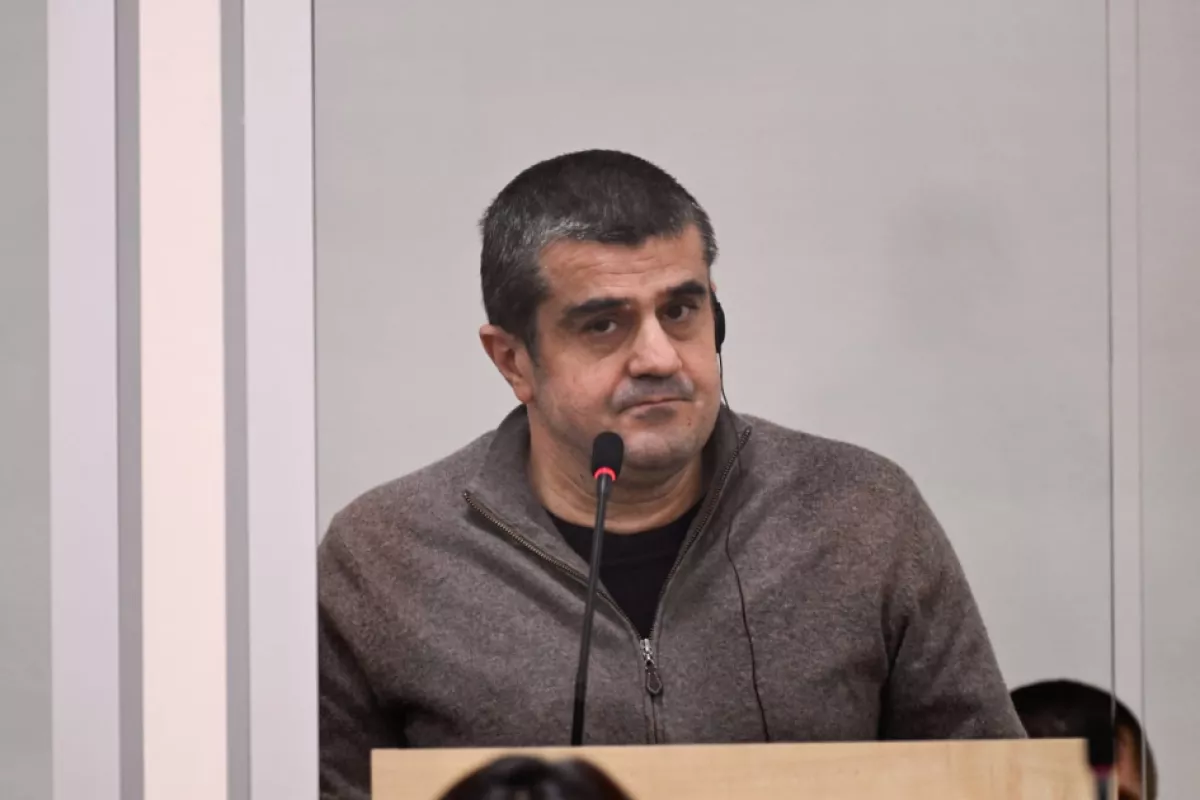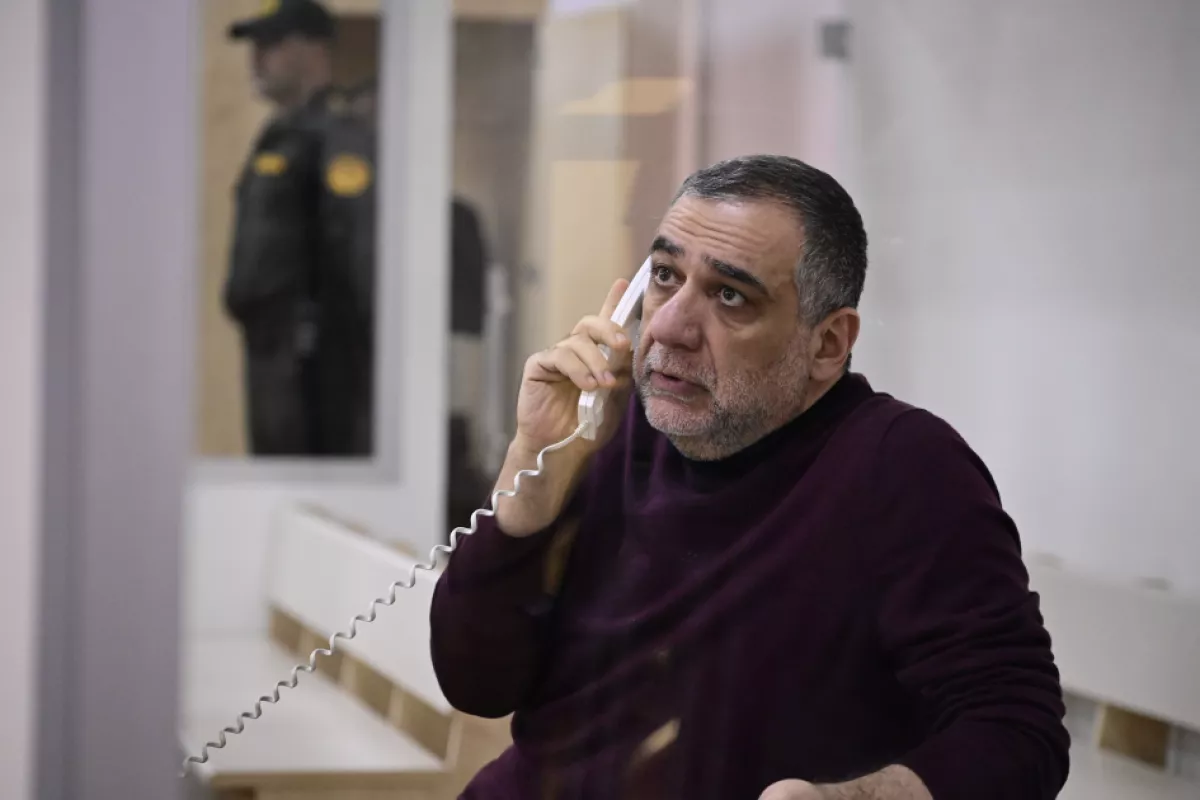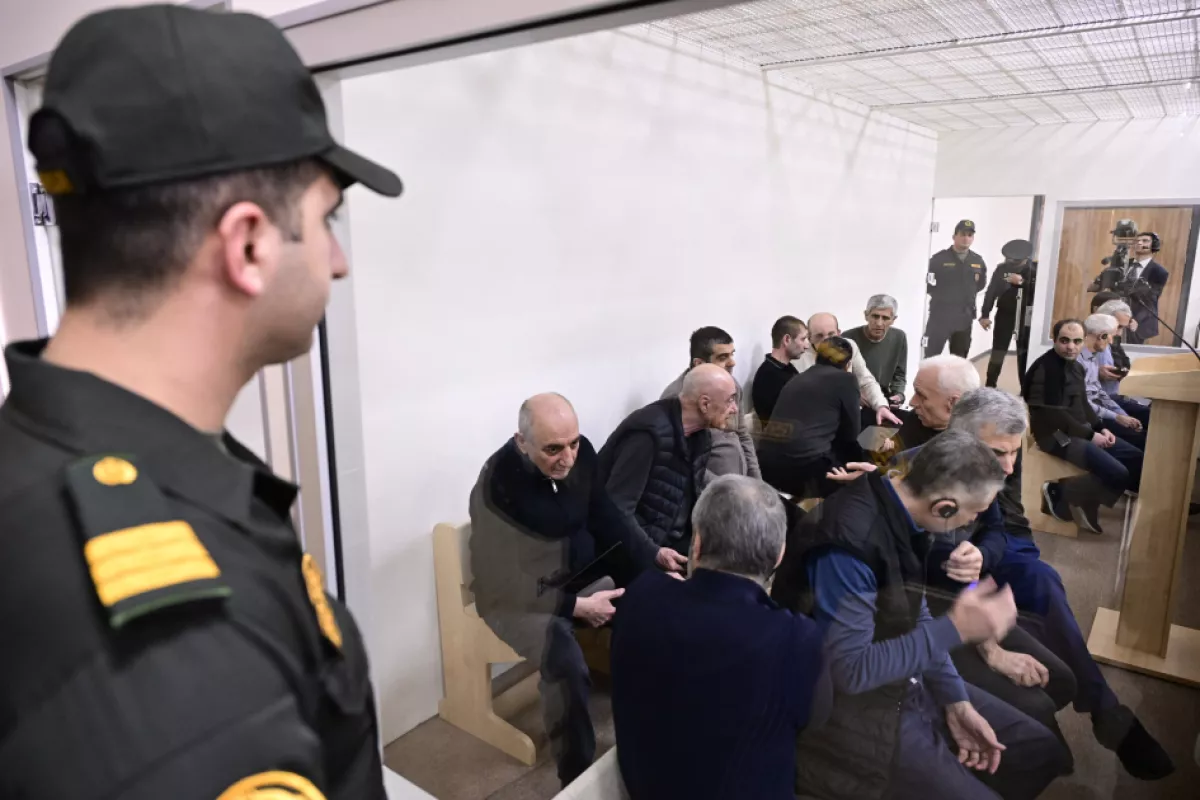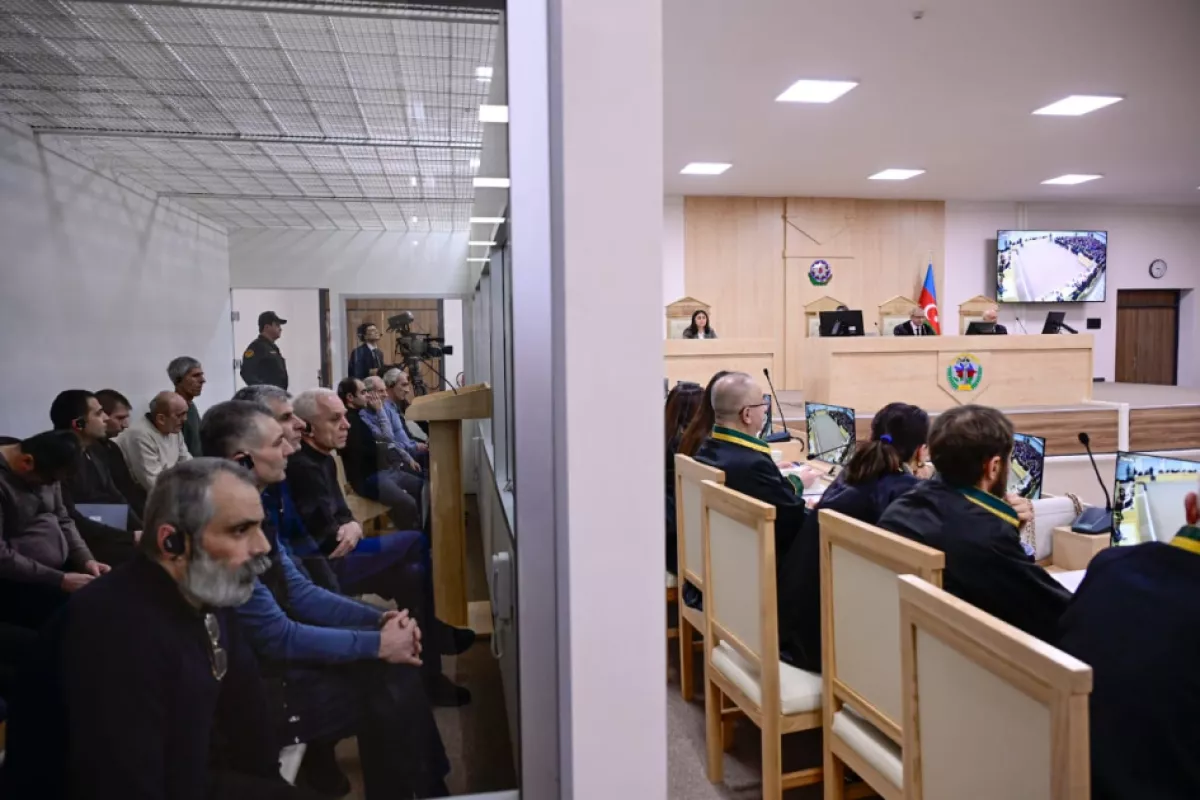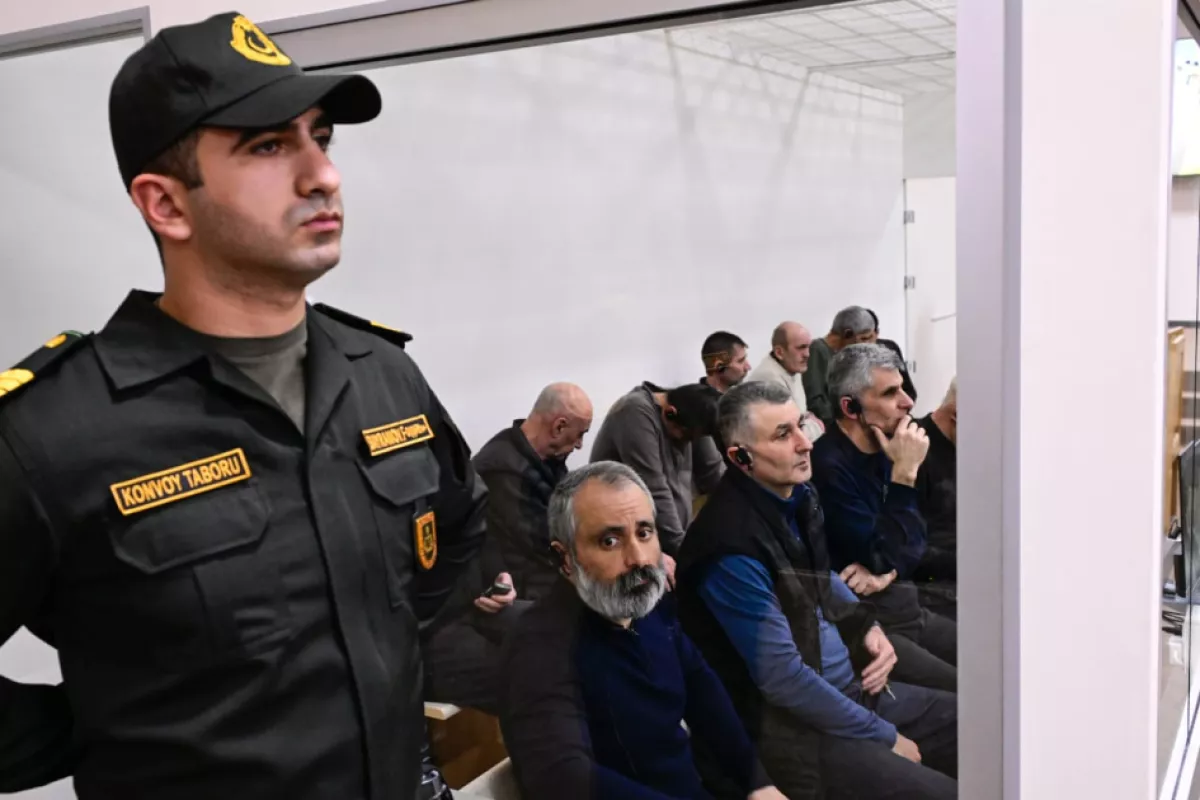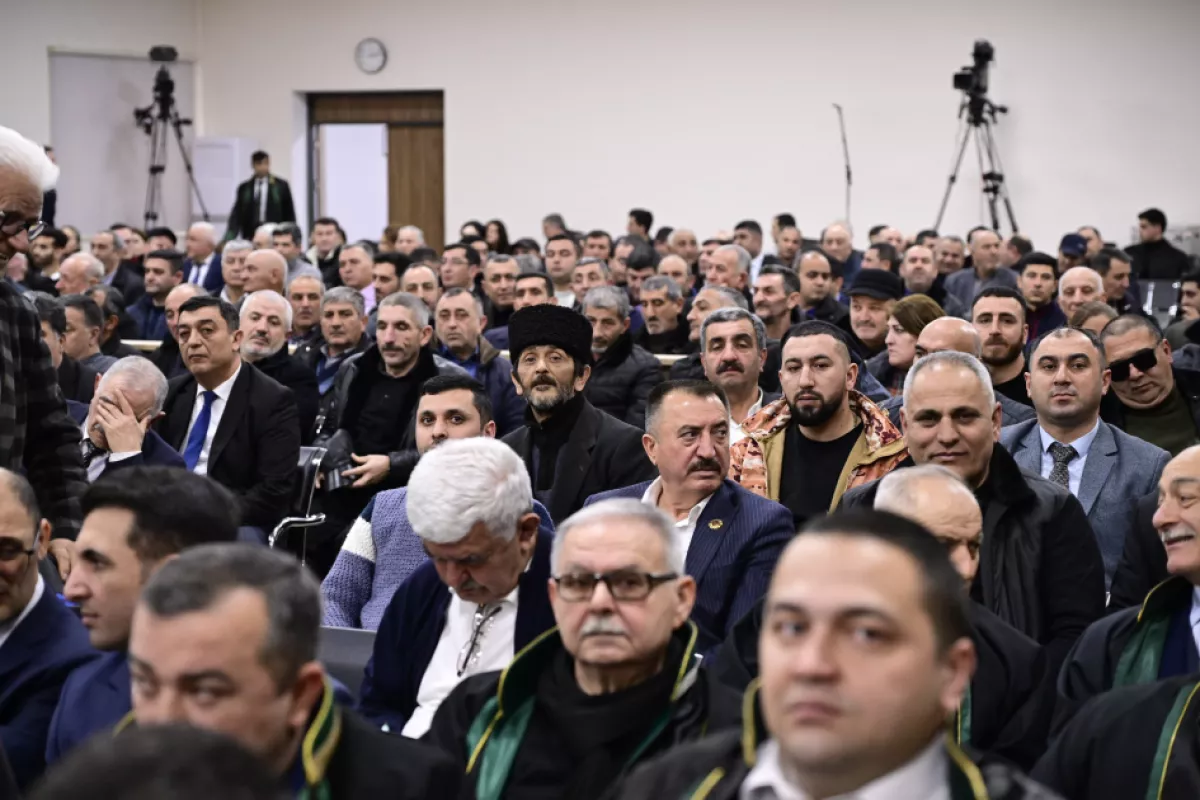Harutyunyan refutes Armenian PM Pashinyan's claims of mistreatment in Baku No psychotropic drugs were used on us / PHOTO
On February 6, court hearings commenced on the criminal cases against the citizens of the Republic of Armenia—Arayik Harutyunyan, Arkadi Ghukasyan, Bako Sahakyan, Davit Ishkhanyan, Davit Babayan, Levon Mnatsakanyan, and others, as well as Ruben Vardanyan—who are accused of committing numerous crimes, including military aggression, crimes against peace and humanity, war crimes, preparation and conduct of an aggressive war, genocide, violations of the laws and customs of war, as well as terrorism, financing of terrorism, violent seizure and retention of power, and other serious offenses.
The hearings are being held at the Baku Military Court, located in the Baku Court Complex. The trial is presided over by Judge Zeynal Aghayev, with Judges Jamal Ramazanov and Anar Rzayev also on the panel. Each of the defendants has been provided with an interpreter for the Armenian and Russian languages, as well as legal representation, Caliber.Az reports via Azertag.
The court session was attended by victims, their legal successors and representatives, prosecutors representing the state prosecution, as well as the head of the Cabinet of Ministers' Office, Rufat Mammadov, who participated as a victim on behalf of the Azerbaijani state.
At the beginning of the trial concerning the criminal case against 15 ethnic Armenian individuals accused of crimes committed by the Republic of Armenia, its armed forces, the so-called "Nagorno-Karabakh Republic" created by Armenia, and its illegal armed groups, the defendant Arayik Harutyunyan requested permission to address the court.
The judge granted him permission to speak.
In his statement, Harutyunyan dismissed as false the claims circulated in the Armenian media alleging that the accused individuals in the ongoing trial were subjected to psychological pressure and administered psychotropic drugs.
"In the detention facility, we had the opportunity to receive information and protest. The conditions of our detention are constantly discussed in Armenian media and other mass media outlets. As far as I understand, the Prime Minister of Armenia has claimed that psychological pressure was exerted on us and that psychotropic drugs were used against us.
What concerns me most is our relatives and loved ones. I want to state that I am familiar with the law on detention conditions. All laws are observed in the detention facility, and we are periodically visited by the International Committee of the Red Cross. We have the opportunity to call our families. In the detention facility, we are treated in accordance with the law. Our rights were upheld by investigators during the investigation. Lawyers were always present in the investigative process.
I especially want to emphasise that there was no pressure on us. During the investigation, we were always treated within the framework of the law. Thank you," stated Araik Harutyunyan.
Next, the defendant Davit Babayan addressed the court, requesting permission to speak.
The court granted his request. In his statement, the defendant expressed satisfaction with the conditions of his detention and stated that neither he nor the other defendants had been subjected to any pressure:
"Speaking for myself, I want to say that there has been no pressure on us here. We are treated with respect at all times, and others in our position should ask themselves what they would do. We have the courage to speak the truth. The truth knows no borders. The conditions of our detention here are also very good."
Following this, the prosecutor representing the state prosecution delivered an opening statement, addressing the court participants and emphasizing the historical significance of the ongoing trial.
"This trial is being held in the name of justice. The evidence in the criminal case, based on historical facts, demonstrates that the crimes committed were not isolated incidents but were meticulously planned and executed with extreme cruelty and brutality at the highest level of organization.
During the trial, it will become clear that the crimes under investigation and presentation were carried out with the political, military, financial, and other support of the Armenian state, as well as under the directives and instructions of Armenia’s political and military leadership.
This trial also holds great historical significance in preventing the recurrence of such horrific crimes. It will be proven that there is no safe haven or refuge for war criminals, and that international relations should be governed by law and justice, not by force and violence."
Following this, the prosecutors took turns reading the concluding part of the indictment.
According to the indictment, a criminal organization was formed with the direct involvement, orders, instructions, material, technical, and personnel support of the Armenian state and its armed forces. This organization operated under centralized management and strict supervision with the aim of committing military aggression against Azerbaijan in violation of both domestic and international legal norms. The leadership, as well as direct and indirect participation, of individuals such as Robert Sedraki Kocharyan, Serzh Azati Sargsyan, Vazgen Mikayeli Manukyan, Vazgen Zaveni Sargsyan, Samvel Andraniki Babayan, Vitali Mikayeli Balasanyan, Zori Hayki Balayan, Seyran Musheghi Ohanyan, Arshavir Surenovich Karamyan, Monte Charles Melkonian, and others, played a key role in these actions.
Subsequently, the roles of the defendants Arayik Harutyunyan, Arkadi Ghukasyan, Bako Sahakyan, Davit Ishkhanyan, Davit Babayan, Levon Mnatsakanyan, and others in the establishment and activities of this criminal organization were announced.
The court proceedings will continue on February 7.
To recap, 15 individuals are accused of crimes committed by the Republic of Armenia and its armed forces, including the illegal "Republic of Nagorno-Karabakh" and its unlawful armed formations, namely: Arayik Vladimiri Harutyunyan, Arkadi Arshaviri Ghukasyan, Bako Sahaki Sahakyan, Davit Rubeni Ishkhanyan, David Azatini Manukyan, Davit Klimi Babayan, Levon Henrikovich Mnatsakanyan, Vasili Ivani Beglaryan, Erik Roberti Ghazaryan, Davit Nelsoni Allahverdiyan, Gurgen Homeri Stepanyan, Levon Romiki Balayan, Madat Arakelovich Babayan, Garik Grigori Martirosyan, Melikset Vladimiri Pashayan.
They are accused under the Criminal Code of the Republic of Azerbaijan for the following crimes: Article 100: Planning, preparing, starting, and waging an aggressive war, Article 102: Attacks on individuals or organizations benefiting from international protection, Article 103: Genocide, Article 105: Destruction of the population, Article 106: Slavery, Article 107: Deportation or forcible transfer of the population, Article 109: Persecution, Article 110: Enforced disappearance of persons, Article 112: Arbitrary detention in violation of international law, Article 113: Torture, Article 114: Mercenarism, Article 115: Violating the laws and customs of war, Article 116: Violating international humanitarian law during armed conflict, Article 118: Military looting, Article 120: Intentional homicide, Article 192: Illegal entrepreneurship, Article 214: Terrorism, Article 214-1: Financing terrorism, Article 218: Establishing a criminal group (organization), Article 228: Illegally acquiring, transferring, selling, storing, carrying, and transporting weapons, components, ammunition, explosives, and devices, Article 270-1: Acts that pose a threat to aviation security, Article 277: Attempt on the life of a state or public figure, Article 278: Seizing power by force and maintaining it by force, altering the constitutional structure of the state by force, Article 279: Creating armed groups or formations not foreseen by law, and other related charges.




